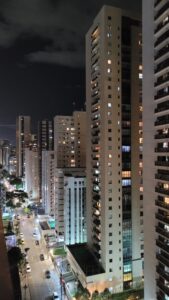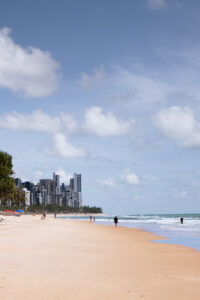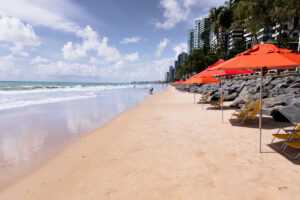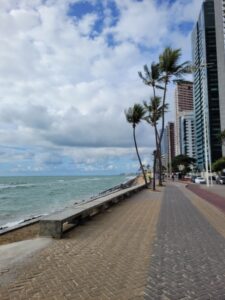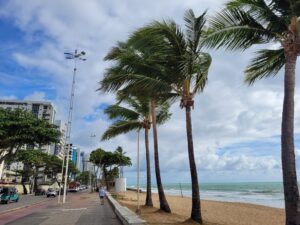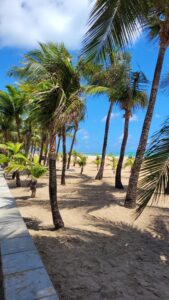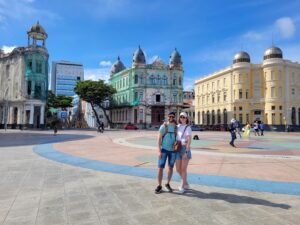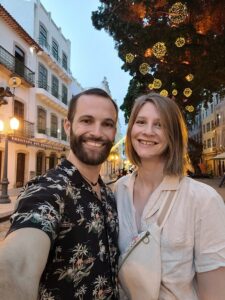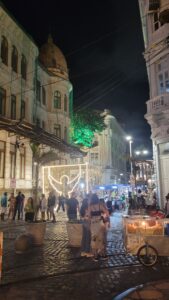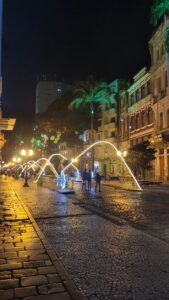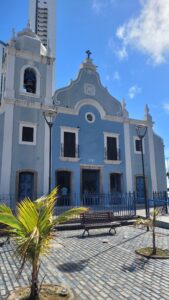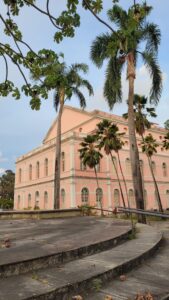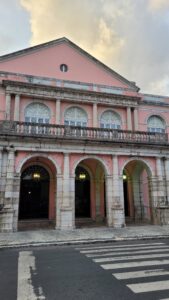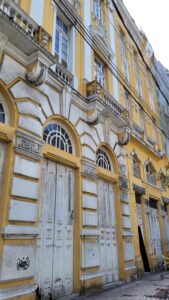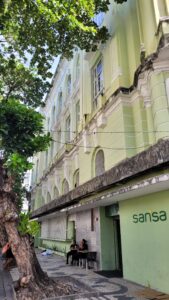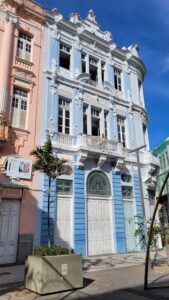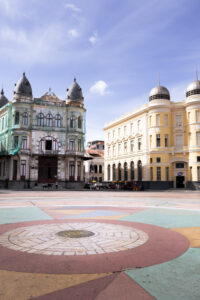Landing in Recife – and what a surprise! This city is huge, a true sea of skyscrapers stretching all the way to the ocean. With nearly 1.6 million residents, Recife is the capital of Pernambuco state but still, has a pretty laid-back vibe. Since the city is so big, we’re getting around by Uber, which is cheap and way more flexible than buses. Public transportation is inexpensive but far from reliable, thanks to the crazy traffic and the “organized chaos” that is used as traffic rules. What’s interesting is that even with all this chaos, things still move at a slow pace.
People here are super relaxed in general. It’s nothing like the stereotypical big European cities where everything moves at a fast speed. I have to admit, the slower pace is good – though it can get annoying, like when you’re waiting in line at the supermarket, and only two people make it through in 10 minutes. But hey, we’re on vacation, so no rush. Another thing that stands out about life here is how early the city wakes up. In Boa Viagem, where we’re staying, the seafront is buzzing with life as early as 6 a.m. I guess people live by the rhythm of the sun here.
Speaking of the seafront, it’s such a cool spot. I love the contrast of the ocean crashing onto soft sandy beaches lined with coconut trees, all with a background of skyscrapers. It’s a landscape I’m definitely not used to. Running along the beach, you almost forget you’re in one of the biggest cities in the Northeast of Brazil.
Brazil is huge, and the differences between the North and South are striking. For starters, the beaches aren’t the same – the ocean is much calmer along the Northeast coast compared to the South. But the biggest difference is the language. People from the South apparently struggle to be understood here, and when we arrived, Tiago had to make an effort to follow conversations. Aside from the accent, we totally stood out as outsiders. Some people were even shocked to hear Tiago is Brazilian – after all these years in Finland, he’s lost his tan, and with me next to him, it didn’t help much.
Before coming here, I had all these preconceptions about how unsafe Brazilian cities are, but I quickly realized that during the day, there’s nothing to worry about as long as you stick to the main areas. At night, you just need to stay where the crowds are. A good tip: it’s better to take a taxi at night to avoid ending up alone in dark streets. With these precautions, you can fully enjoy Recife’s vibrant nightlife. This city is known for being lively, with music and cultural events, especially at the end of the year. Locals also told us that Recife’s Carnival is one of the biggest in Brazil, attracting tourists from all over the world. Paired with Olinda’s Carnival, it’s massive – you really have to let yourself get carried along by the crowd because there are just too many people.
Recife, located in Pernambuco, is one of Brazil’s oldest cities and has a fascinating history. In the 16th century, it was just the fishing port for the colonial city of Olinda and a storage point for sugarcane waiting to be shipped to Europe. Quickly, Recife became an important port, often attacked by the French, English, and Dutch. In 1630, the Dutch took control of the region, burned Olinda, and set up in Recife, which they found easier to defend because it’s on an island surrounded by two rivers. They developed the city and, being more tolerant of Judaism than the portuguese, even allowed a synagogue to be built on Bom Jesus Street. Both the synagogue and the street have been preserved and restored, making a stroll there feel like a trip back in time. It’s even considered one of the most beautiful streets in the world.
Finally, in 1654, the Portuguese took advantage of the decline of Dutch Brazil and reclaimed the area after years of conflict. You can still see Portuguese and Dutch influences in the architecture of the old town.
One last thing to mention is Marco Zero. It’s the starting point for all railway distances in Pernambuco state. While the railways are no longer in use, parts of them have been preserved on Bom Jesus Street.


